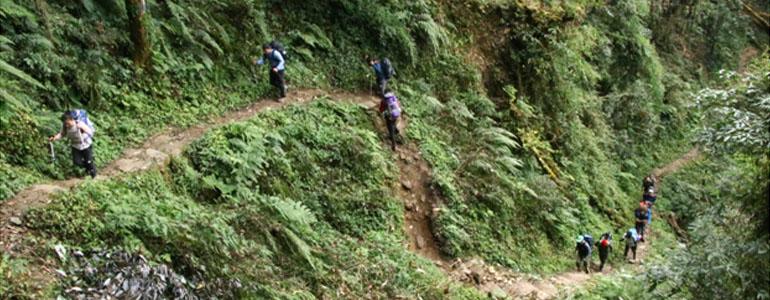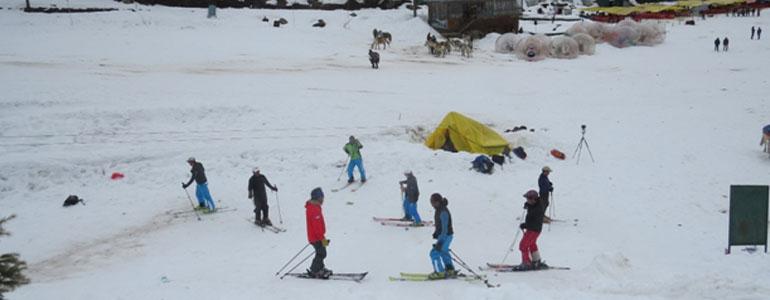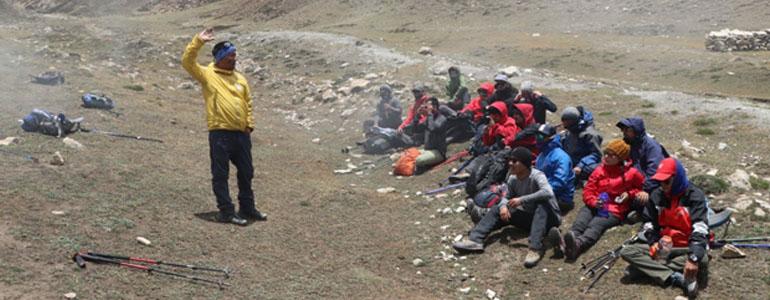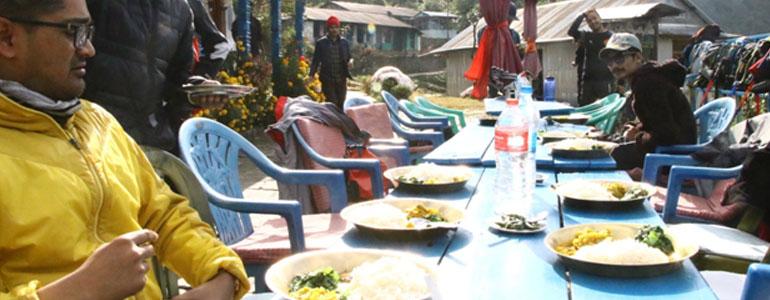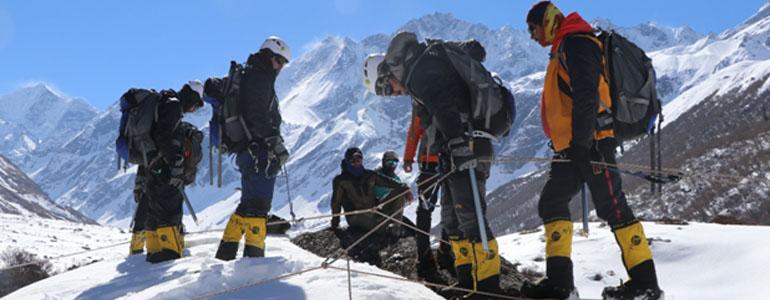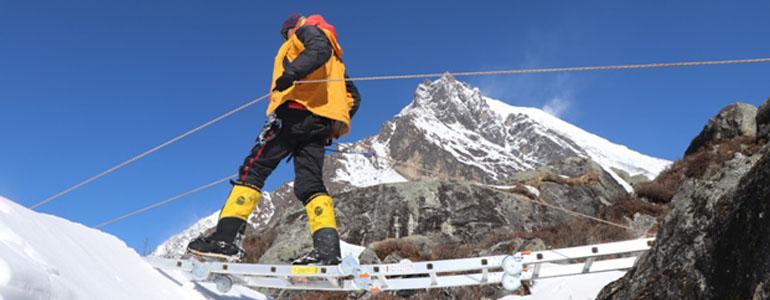Ecotourism, also known as ecological tourism, is responsible travel to fragile, pristine, and usually protected areas that strives to be low-impact and (often) small-scale. It helps educate the traveler; provides funds for conservation; directly benefits the economic development and political empowerment of local communities; and fosters respect for different cultures and for human rights. Take only memories and leave only footprints is a very common slogan in protected areas. Tourist destinations are shifting to low carbon emissions following the trend of visitors more focused in being environmentally responsible adopting a sustainable behavior. In this regard the practical goals set by world organization can be of high value while educating individuals and students at the academy. To meet the set targets and goals of UNO mentioned earlier the following pragmatic approaches are set forward by the world organization. Students of the academy are thus taken as harbingers of changes that are just what our communities need.
- UN urges every one of us take the following most necessary and basic steps.
- Save electricity by plugging appliances into a power strip and turning them off completely when not in use, including your computer.
- Stop paper bank statements and pay your bills online or via mobile. No paper, no need for forest destruction.
- Share, don’t just like. If you see an interesting social media post about women’s rights or climate change, share it so folks in your network see it too.
- Speak up! Ask your local and national authorities to engage in initiatives that don’t harm people or the planet. You can also voice your support for the Paris Agreement and ask your country to ratify it or sign it if it hasn’t yet.
- Don’t print. See something online you need to remember? Jot it down in a notebook or better yet a digital post-it note and spare the paper.
- Turn off the lights. Your TV or computer screen provides a cosy glow, so turn off other lights if you don’t need them.
- Do a bit of online research and buy only from companies that you know have sustainable practices and don’t harm the environment.
- Report online bullies. If you notice harassment on a message board or in a chat room, flag that person. • Stay informed. Follow your local news and stay in touch with the Global Goals online or on social media at @GlobalGoalsUN.
- Tell us about your actions to achieve the global goals by using the hashtag #globalgoals on social networks.
- In addition to the above, offset your remaining carbon emissions! You can calculate your carbon footprint and purchase climate credits from Climate Neutral Now. In this way, you help reduce global emissions faster!”
Things you can do at home
- Air dry. Let your hair and clothes dry naturally instead of running a machine. If you do wash your clothes, make sure the load is full.
- Take short showers. Bathtubs require gallons more water than a 5-10-minute shower.
- Eat less meat, poultry, and fish. More resources are used to provide meat than plants.
- Freeze fresh produce and leftovers if you don’t have the chance to eat them before they go bad. You can also do this with takeaway or delivered food, if you know you will not feel like eating it the next day. You will save food and money.
- Compost—composting food scraps can reduce climate impact while also recycling nutrients.
- Recycling paper, plastic, glass & aluminum keeps landfills from growing.
- Buy minimally packaged goods.
- Avoid pre-heating the oven. Unless you need a precise baking temperature, start heating your food right when you turn on the oven.
- Plug air leaks in windows and doors to increase energy efficiency
- Adjust your thermostat, lower in winter, higher in summer
- Replace old appliances with energy efficient models and light bulbs
- If you have the option, install solar panels in your house. This will also reduce your electricity bill!
- Get a rug. Carpets and rugs keep your house warm and your thermostat low.
- Don’t rinse. If you use a dishwasher, stop rinsing your plates before you run the machine.
- Choose a better diaper option. Swaddle your baby in cloth diapers or a new, environmentally responsible disposable brand.
- Shovel snow manually. Avoid the noisy, exhaust-churning snow blower and get some exercise.
- Use cardboard matches. They don’t require any petroleum, unlike plastic gas-filled lighters.
Things you can do outside your house
- Shop local. Supporting neighborhood businesses keeps people employed and helps prevent trucks from driving far distances.
- Shop Smart—plan meals, use shopping lists and avoid impulse buys. Don’t succumb to marketing tricks that lead you to buy more food than you need, particularly for perishable items. Though these may be less expensive per ounce, they can be more expensive overall if much of that food is discarded.
- Buy Funny Fruit—many fruits and vegetables are thrown out because their size, shape, or color are not “right”. Buying these perfectly good funny fruit, at the farmer’s market or elsewhere, utilizes food that might otherwise go to waste.
- When you go to a restaurant and are ordering seafood always ask: “Do you serve sustainable seafood?” Let your favorite businesses know that ocean friendly seafood’s on your shopping list.
- Shop only for sustainable seafood. There are now many apps like this one that will tell you what is safe to consume.
- Bike, walk or take public transport. Save the car trips for when you’ve got a big group.
- Use a refillable water bottle and coffee cup. Cut down on waste and maybe even save money at the coffee shop.
- Bring your own bag when you shop. Pass on the plastic bag and start carrying your own reusable totes.
- Take fewer napkins. You don’t need a handful of napkins to eat your takeout. Take just what you need.
- Shop vintage. Brand-new isn’t necessarily best. See what you can repurpose from second-hand shops.
- Maintain your car. A well-tuned car will emit fewer toxic fumes.
- Donate what you don’t use. Local charities will give your gently used clothes, books and furniture a new life.
- Vaccinate yourself and your kids. Protecting your family from disease also aids public health.
- Take advantage of your right to elect the leaders in your country and local community. These are only a few of the things you can do. Find out more goals you care most about and other ways to engage more actively.


